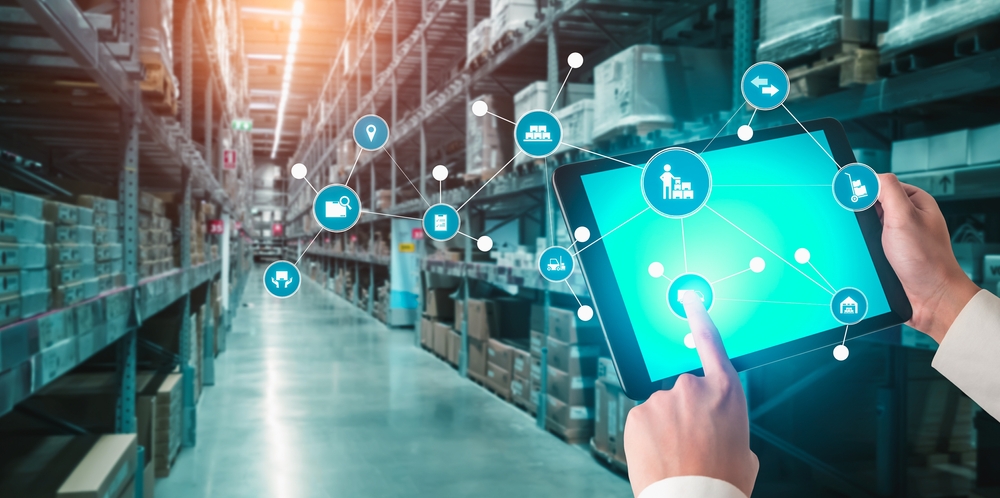Rethinking Manufacturing Supply Chain Through Generative AI

The global supply chain consists of various interconnected entities such as suppliers, manufacturers, distributors, retailers, wholesalers, and customers. Effective Supply Chain Management (SCM) aims to streamline this network, ensuring that each component and product is delivered to its intended location at the right time and with minimal friction. This involves sourcing essential materials, producing goods, storing inventory, managing transportation, and ensuring timely delivery to customers. This is where generative AI in supply chain management helps.
Organizations using AI and ML are 23% more profitable. Gen AI, a specialized AI branch, generates new content like text, images, video, audio, and code. Unlike traditional AI focusing on tasks and decisions, Gen AI creates new information.
Gen AI will make supply chains more adaptable and resilient. It will create, simulate, and predict demand, using big data and real-time signals.
Gen AI plays a pivotal role in developing self-healing supply chains. While traditional AI analyses data and detects patterns to anticipate disruptions, Gen AI advances further by creating and simulating a broad spectrum of scenarios. This capability allows the supply chain to proactively identify vulnerabilities and devise innovative solutions to mitigate risks before they occur.
The past year has underscored the vulnerability of global supply chains. Geopolitical conflicts, component shortages, blocked canals, and many circumstances related to climatic conditions have disrupted manufacturers worldwide. Even without these high-profile incidents, supply chain disruptions can cost organizations an average of $184 million annually.
Effective supply chain management is crucial for manufacturers to accurately predict demand and avoid overproduction of low-demand products, which can severely impact revenues. Many manufacturers already use analytics and AI to enhance the resilience, security, and efficiency of their supply chains and operations.
Recent advancements in generative AI present new opportunities for transformative change in the manufacturing industry. Generative AI democratizes data and analytics, making their benefits accessible to a broader range of organizational roles.
However, to fully leverage generative AI, manufacturers must understand its potential impact areas within the supply chain and learn how to exploit it effectively.
Generative AI: The Supply Chain’s Crystal Ball
Every industry strives to predict the next significant trend. Manufacturers who succeed in this can significantly boost their revenue and reinvest in their business.
Conversely, misjudging demand can result in excess inventory or stockouts during critical periods, leading to substantial losses. While many manufacturers use AI to analyze historical data to predict and mitigate these risks, generative AI simplifies and enhances this process. By integrating structured and unstructured data in real-time from multiple sources, generative AI provides managers with a comprehensive view of operations and potential demand. These insights enable more effective planning for future demand.
For example, generative AI can analyze demand fluctuations by considering customer orders, transactional data, social media trends, economic indicators, and even weather patterns. This holistic view helps manufacturers anticipate consumer behavior months in advance.
Additionally, generative AI can quickly analyze past supplier performance metrics, contract documents, financial statements, and other unstructured data to create dynamic, up-to-date supplier risk profiles. This allows manufacturers to make informed decisions about their suppliers, gaining a competitive edge.
Enhancing Supply Chain Resilience
Supply chain disruptions are costly for manufacturers. For instance, if a key supplier goes out of business or experiences a cyberattack, manufacturers must quickly identify alternative suppliers, assess their suitability, and determine delivery timelines. During this decision-making process, factories risk parts shortages and reduced production, leading to lost revenue.
In early 2022, UK car production dropped significantly due to parts shortages, resulting in nearly 100,000 fewer cars being built in the first three months compared to the previous year.
AI-powered analytics can optimize this decision-making process, enabling manufacturers to recover more swiftly from unplanned disruptions with minimal operational impact. Generative AI improves supply chain visibility by analyzing data from distributors, suppliers, and factories. This helps manufacturers identify bottlenecks more quickly and avoid potential disruptions before they occur.
Generative AI can simulate various scenarios and responses to potential disruptions. Questions like “Which facilities are at risk of stockouts? What is the impact of moving inventory from plant A to plant B?” can be rapidly modeled to provide recommendations, eliminating the need to manually navigate multiple systems. By enhancing supply chain and ecosystem understanding, manufacturers can build a more resilient supply chain.
Building a Smarter Factory
Smarter factories reduce downtime, optimize resource use, and increase productivity. For instance, Invasystems offers generative AI solutions to manufacturers to minimize downtime and expedite repairs. This requires integrating IoT devices and data with generative AI, allowing manufacturers to monitor machine performance and predict maintenance needs.
Generative AI in supply chain management can assist maintenance teams by analyzing technical manuals, service histories, and maintenance logs to provide immediate support for equipment failures, reducing downtime. This leads to a more sustainable, efficient, and profitable factory capable of adapting to supply chain changes.
Implementing Generative AI in the Supply Chain
Successfully implementing generative AI requires a deep understanding of its capabilities. Manufacturers must partner with trusted providers like Invasystems who can offer the necessary skills and expertise.
Additionally, preparing an AI adoption roadmap that includes all stakeholders is crucial for creating a system that delivers impactful results. Manufacturers who begin laying the foundations for generative AI now will benefit from faster, more informed decisions, and a more resilient and productive business.
By embracing generative AI, manufacturers can navigate the complexities of modern supply chains, enhance operational efficiency, and drive innovation.



